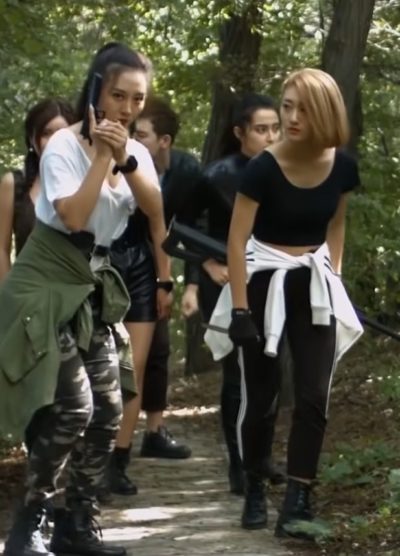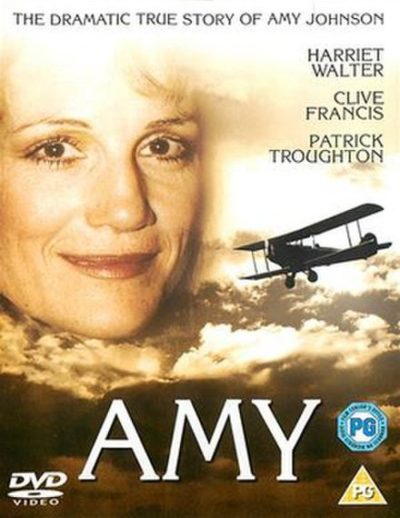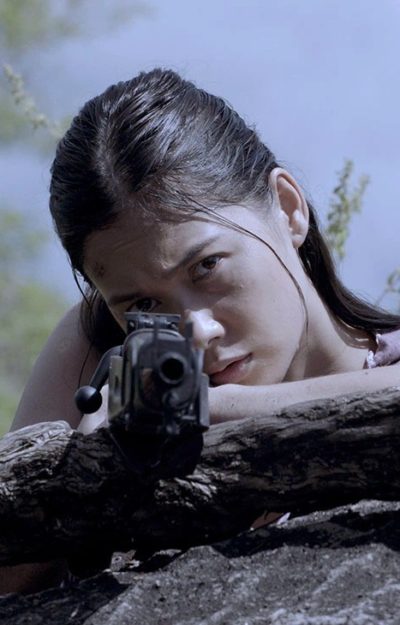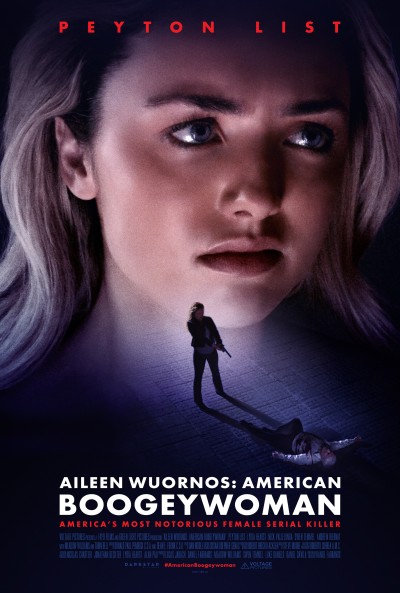★
“Badly broken China”
 I have seen bad movies before. I have seen Chinese movies before. But I have never before seen such a bad Chinese movie. Really, their action films are usually at least somewhat competent: even the dreadful work of the notorious Godfrey Ho usually had something of… well, interest, if not perhaps quality to offer. This, however? Utterly appalling, with close to no redeeming features. One anecdote should give you some idea of what I mean. When our daughter was 12, she and her little friend borrowed the camcorder and made a 10-minute action movie, mostly taking place in the garage. I am 100% serious when I say it had significantly better fight choreography than this, and the other elements which go into the film are of little if any higher standard.
I have seen bad movies before. I have seen Chinese movies before. But I have never before seen such a bad Chinese movie. Really, their action films are usually at least somewhat competent: even the dreadful work of the notorious Godfrey Ho usually had something of… well, interest, if not perhaps quality to offer. This, however? Utterly appalling, with close to no redeeming features. One anecdote should give you some idea of what I mean. When our daughter was 12, she and her little friend borrowed the camcorder and made a 10-minute action movie, mostly taking place in the garage. I am 100% serious when I say it had significantly better fight choreography than this, and the other elements which go into the film are of little if any higher standard.
The heroines are a group who have apparently just graduated from college. Though before we get to that, there’s a prologue involving a (stock footage) war between China and Vietnam, which somehow led to the establishment of “an International Evil Eye Organization”. One of the members was Xiao Lishan, who went off and did AIDS research. Pause for the first of many poorly-conceived scenes, of the girls wondering what to do with their lives, which is neither interesting nor informative. This is mercifully interrupted by Xiao Fei (Ling) getting a phone-call from Mom, telling Fei her father has committed suicide. It won’t be long before viewers will be considering similar action, as a means of escape from this viewing experience.
Fei can’t believe he’d take his own life, and the suspicious actions of a delivery driver increase her doubts. So after the police close the case, she and her group of gal pals begin their own investigation, seeking the culprits and to make them pay. This will eventually take them back to Hanoi – I’m assuming that’s the “H city” referred to. Though the budget extends to nothing more jet-setting than a random shot of a plane taking off, without even any of the usual “exterior shots” used in low-budget cinema to establish an exotic location. This is just one of the many technical flaws, also apparent in quite terrible audio work, ranging from the tinny and echoey, to the basically inaudible. Even though this was subtitled, it remained an annoyance.
But this is positively Oscar-calibre compared to the action. It builds to an assault in search of a USB drive, where they are supposedly going up against “commandos”. All I can say is, the Chinese Army is vastly over-rated, though I was amused by the way they wear ski-masks for no apparent reasons. It is painfully clear nobody here has had any kind of martial arts training at all, or is remotely familiar with the business end of a firearm. Combine this with the woeful ineptness present in almost every other level, from the writing through the performances to the direction, and you’ve got something that is a couple of credible drone shots away from being a contender for the worst action heroine film of all time.
Dir: Xiao Ju-Shi
Star: Ling Yu, Zhang Mu-Qing, Pang Cheng-Yu, Maidina Paluk





 Not to be confused with the 2022 rape-revenge film of the same name (which I’ll get round to reviewing down the pipe), this is somewhat lighter in tone, though there’s a case to be made that this clashes terribly with the subject matter. Jenny (Hsu) is a journalist, working under Cheryl (Garofalo),and her work has brought her to the attention of an online stalker, who sends her increasingly disturbed and disturbing emails. When the harassment begins to move from the cyberworld into the real one, and the authorities fail even to reach the level of disinterest, Jenny teams up with room-mate Lisa (Morales), to hunt down the perpetrator and bring him to justice themselves.
Not to be confused with the 2022 rape-revenge film of the same name (which I’ll get round to reviewing down the pipe), this is somewhat lighter in tone, though there’s a case to be made that this clashes terribly with the subject matter. Jenny (Hsu) is a journalist, working under Cheryl (Garofalo),and her work has brought her to the attention of an online stalker, who sends her increasingly disturbed and disturbing emails. When the harassment begins to move from the cyberworld into the real one, and the authorities fail even to reach the level of disinterest, Jenny teams up with room-mate Lisa (Morales), to hunt down the perpetrator and bring him to justice themselves. It’s interesting to compare the approach taken in this biopic of aviation heroine Amy Johnson, made in 1984, with the one over 40 years earlier (and shortly after her death) in
It’s interesting to compare the approach taken in this biopic of aviation heroine Amy Johnson, made in 1984, with the one over 40 years earlier (and shortly after her death) in  The above rating reflects my deep-held tolerance for low budget cinema. If a film is made with heart, I’m generally prepared to overlook, to some degree, technical shortcomings. Both sides of that equation are present here, in a somewhat revisionist take on the Robin Hood mythos. This takes place after Hood’s original victory over the Sheriff of Nottingham, and he has now gone on crusade to the Holy Lands with King Richard. In their absence, however, the country has not fared well. Marian (Craig) has adopted another identity, and is hiding out as novice nun Matilda, though occasionally sneaks out to help poach from the rich, and give to the poor.
The above rating reflects my deep-held tolerance for low budget cinema. If a film is made with heart, I’m generally prepared to overlook, to some degree, technical shortcomings. Both sides of that equation are present here, in a somewhat revisionist take on the Robin Hood mythos. This takes place after Hood’s original victory over the Sheriff of Nottingham, and he has now gone on crusade to the Holy Lands with King Richard. In their absence, however, the country has not fared well. Marian (Craig) has adopted another identity, and is hiding out as novice nun Matilda, though occasionally sneaks out to help poach from the rich, and give to the poor. This is part of the Blood universe, which previously gave us anime series
This is part of the Blood universe, which previously gave us anime series  I’m not 100% sure, but I suspect this may be the first film I’ve tagged as both in the “sport” and “home invasion” genres. It’s not a crossover you see every day. However, it is fair comment in this case, even if takes its own sweet time to get there. Kate Matthews (Alexy) has various bits of static in her life. Her husband, Ash (Ford), spends too much time at his Very Important job in high finance, rather than on their relationship. Daughter Susan is being a teenager. Kate just lost an archery tournament. Oh, and their house has been invaded by Reed (Nell) and her band of thugs, who are now intent on forcing Ash to transfer thirty million dollars into their offshore bank-accounts.
I’m not 100% sure, but I suspect this may be the first film I’ve tagged as both in the “sport” and “home invasion” genres. It’s not a crossover you see every day. However, it is fair comment in this case, even if takes its own sweet time to get there. Kate Matthews (Alexy) has various bits of static in her life. Her husband, Ash (Ford), spends too much time at his Very Important job in high finance, rather than on their relationship. Daughter Susan is being a teenager. Kate just lost an archery tournament. Oh, and their house has been invaded by Reed (Nell) and her band of thugs, who are now intent on forcing Ash to transfer thirty million dollars into their offshore bank-accounts. A disease sweeps the planet, killing billions. The only ones with any hope of surviving in the outside world are the young, a small number of whom appear to have a natural immunity. Five years on, and Ellie is one of the few to have endured, scraping for a life among the leftovers of civilization. But she and the other survivors are the targets for the Stalkers: roaming groups of biohazard-suit clad hunters in white vans. They seek to capture the immune, for use in a project to develop a vaccine that can allow the elite to come out of their safe havens. While trying to avoid them, she encounters Quinn (Smith), another survivor with a wealth of knowledge, and a hard-edged approach to life. Initially, Quinn wants nothing to do with Ellie, though eventually realizes two heads can sometimes be better than one, in the never ending struggle to stay alive and free.
A disease sweeps the planet, killing billions. The only ones with any hope of surviving in the outside world are the young, a small number of whom appear to have a natural immunity. Five years on, and Ellie is one of the few to have endured, scraping for a life among the leftovers of civilization. But she and the other survivors are the targets for the Stalkers: roaming groups of biohazard-suit clad hunters in white vans. They seek to capture the immune, for use in a project to develop a vaccine that can allow the elite to come out of their safe havens. While trying to avoid them, she encounters Quinn (Smith), another survivor with a wealth of knowledge, and a hard-edged approach to life. Initially, Quinn wants nothing to do with Ellie, though eventually realizes two heads can sometimes be better than one, in the never ending struggle to stay alive and free. Seeing this described as “an experimental thriller,” set my alarm bells ringing. I’ve seen enough “experimental” film in my time, to realize it’s typically a code-word meaning “incoherent rubbish.” The above rating is thus partially a reflection of my relief that this did not fall into that category. You still, very definitely, have to manage your expectations here. If you go in expecting a slick, Jason Bourne style adventure, you will be sorely disappointed. For this is a no-budget entity, largely guerilla filmed by a one-man crew, and with a lead actress who has no real experience. It has already significantly surpassed all my expectations, simply through not being a total disaster.
Seeing this described as “an experimental thriller,” set my alarm bells ringing. I’ve seen enough “experimental” film in my time, to realize it’s typically a code-word meaning “incoherent rubbish.” The above rating is thus partially a reflection of my relief that this did not fall into that category. You still, very definitely, have to manage your expectations here. If you go in expecting a slick, Jason Bourne style adventure, you will be sorely disappointed. For this is a no-budget entity, largely guerilla filmed by a one-man crew, and with a lead actress who has no real experience. It has already significantly surpassed all my expectations, simply through not being a total disaster.
 The heroine here, Mariano (Salvador), has to count as the baddest bitch I’ve seen in quite a long time. In terms of being a sheer, unstoppable force, she’s right up there with Jen from
The heroine here, Mariano (Salvador), has to count as the baddest bitch I’ve seen in quite a long time. In terms of being a sheer, unstoppable force, she’s right up there with Jen from  Almost twenty years after her execution, Aileen Wuornos remains a cultural icon. A very rare example of a genuine female serial killer, she was killed by lethal injection in 2002, after being convicted of six murders, and confessing to a seventh. The following year, Charlize Theron won an Oscar for her portrayal of Wuornos in
Almost twenty years after her execution, Aileen Wuornos remains a cultural icon. A very rare example of a genuine female serial killer, she was killed by lethal injection in 2002, after being convicted of six murders, and confessing to a seventh. The following year, Charlize Theron won an Oscar for her portrayal of Wuornos in